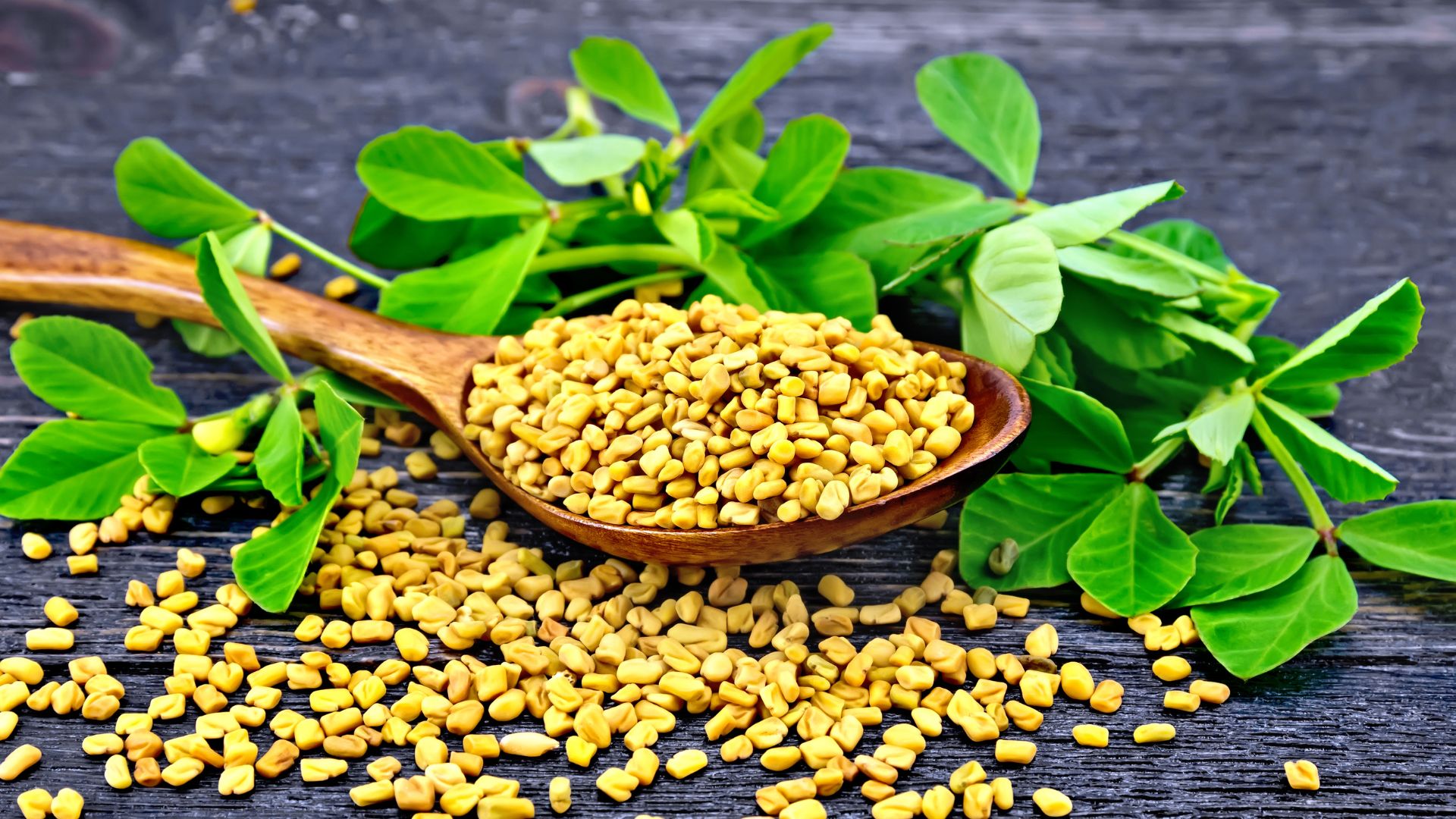
Fenugreek, also known as Trigonella foenum-graecum, is a versatile herb that has been used for centuries in traditional medicine and cooking. Known for its slightly bitter taste and maple-like aroma, fenugreek seeds and leaves are widely used in Indian, Middle Eastern, and Mediterranean cuisines. But beyond its culinary applications, fenugreek is valued for its numerous health benefits and medicinal properties.
In this article, we’ll explore the many uses, health benefits, potential side effects, and other important facts you should know about fenugreek.
Table of Contents
What is Fenugreek?
Fenugreek is an annual herb native to the Mediterranean region, southern Europe, and western Asia. It belongs to the legume family and is widely cultivated for its seeds and leaves. The seeds are yellow-brown and have a pungent, aromatic flavor. Both the seeds and the fresh leaves are used in food and medicine.
In Ayurveda and traditional Chinese medicine, fenugreek has long been used to support digestion, reduce inflammation, and improve women's reproductive health.
Nutritional Profile of Fenugreek
Fenugreek seeds are rich in nutrients, including:
-
Fiber
-
Iron
-
Magnesium
-
Manganese
-
Copper
-
Vitamin B6
-
Protein
-
Antioxidants
A tablespoon (about 11 grams) of whole fenugreek seeds provides around:
-
Calories: 35
-
Protein: 3 grams
-
Fiber: 3 grams
-
Carbs: 6 grams
-
Fat: 1 gram
Common Uses of Fenugreek
1. Culinary Uses
-
Used as a spice in Indian dishes (curries, pickles, spice mixes like garam masala)
-
Fenugreek leaves (fresh or dried) used in cooking as a herb (called methi)
-
Flavoring in imitation maple syrup and certain beverages
2. Traditional Medicine
-
Used to support digestion and reduce bloating
-
Boosts milk supply in lactating women
-
Applied to the skin to reduce inflammation
3. Supplements
-
Available in capsules, powders, teas, and extracts for medicinal use
Top Health Benefits of Fenugreek
1. Helps Regulate Blood Sugar
Fenugreek may improve insulin function and lower blood sugar levels in people with type 2 diabetes or prediabetes due to its high fiber content and effect on insulin sensitivity.
2. Supports Lactation in Breastfeeding Mothers
Fenugreek is one of the most popular herbs used to naturally increase milk production in new mothers. Studies show it can significantly boost breast milk volume within days.
3. Promotes Digestive Health
The fiber in fenugreek helps improve digestion, relieve constipation, and reduce acid reflux symptoms.
4. Reduces Inflammation
Fenugreek contains antioxidants and anti-inflammatory compounds that help reduce chronic inflammation in the body.
5. Supports Heart Health
By lowering cholesterol levels and blood pressure, fenugreek contributes to improved cardiovascular function and reduced risk of heart disease.
6. May Improve Testosterone Levels in Men
Some studies suggest that fenugreek may naturally boost testosterone and improve libido, strength, and endurance in men.
7. Assists in Weight Management
Fenugreek's fiber content helps promote satiety, reducing hunger and supporting healthy weight loss.
8. Improves Skin and Hair Health
Topical application or oral use may help treat dandruff, hair thinning, and acne due to fenugreek’s antimicrobial and anti-inflammatory properties.
How to Use Fenugreek
-
Soaked Seeds: Soak 1 teaspoon overnight and eat in the morning to aid digestion and sugar control.
-
Fenugreek Tea: Boil seeds in water for 5–10 minutes and drink the strained water.
-
Fenugreek Capsules: Available as supplements, often used for hormonal balance or lactation support.
-
Fenugreek Paste: Made from seeds or powder and applied topically for skin or hair treatments.
-
Culinary Use: Add seeds or leaves to dishes for flavor and health benefits.
Possible Side Effects and Precautions
While fenugreek is generally safe when consumed in moderate amounts, it may cause side effects in some individuals:
-
Diarrhea or upset stomach
-
Body odor or maple-like sweat smell
-
Allergic reactions (especially in people allergic to peanuts or chickpeas)
-
Low blood sugar (hypoglycemia) if taken with diabetes medication
-
May affect iron absorption due to its fiber and phytate content
Always consult a healthcare provider before starting any supplement.
Who Should Avoid Fenugreek?
-
Pregnant women: May stimulate uterine contractions and should be avoided unless advised by a doctor.
-
People with hormone-sensitive cancers: Fenugreek may have estrogen-like effects.
-
Individuals with bleeding disorders: It may slow blood clotting.
-
Children: Should not take fenugreek supplements unless prescribed.
Fenugreek is a powerful herb with a wide range of uses—from aiding digestion and managing blood sugar to promoting lactation and improving hair health. Whether used in cooking, as a tea, or in supplement form, it offers a natural way to support overall well-being.
However, as with any natural remedy, it’s essential to use fenugreek responsibly and be aware of potential side effects. If you are on medications or have underlying health conditions, consult your healthcare provider before including fenugreek in your wellness routine.


